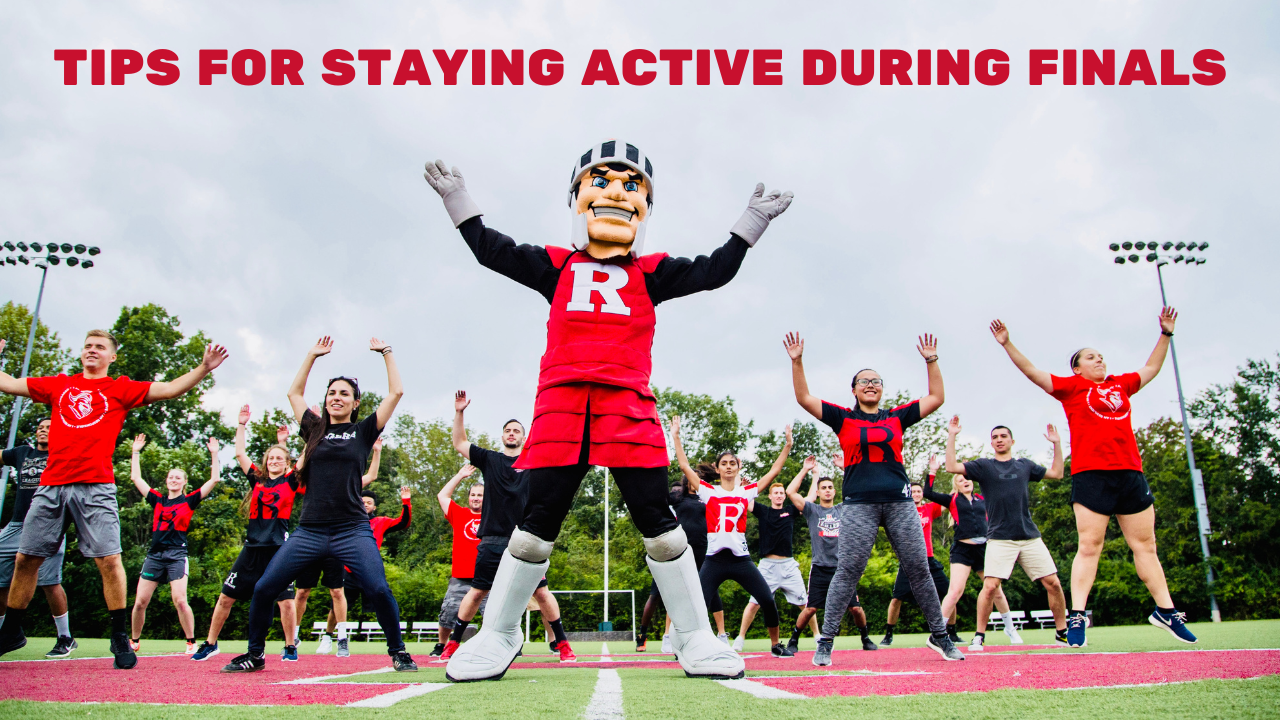
College students encounter extraordinary stress during their academic careers, specifically during mid-terms and finals weeks. Juggling classes, studying, jobs, personal relationships, and life, in general, can be overwhelming.
Good News!
Exercise is not only beneficial for physical health but also enhances mental health and academic success.
Research has shown time and time again that as little as 5-minutes of daily physical activity can reduce fatigue, improve alertness and concentration, and enhance overall cognitive function (ADAA).
Taking the time for physical activity during finals week may be as important as studying for students’ academic performance!
Participation in Campus Recreation Results in…
- Higher reported GPA
- Positive academic outcomes
- Positive impact on student retention
- Higher reported benefits to overall wellness, including physical health, psychosocial health, and learning outcomes
TIPS FOR STAYING ACTIVE DURING FINALS
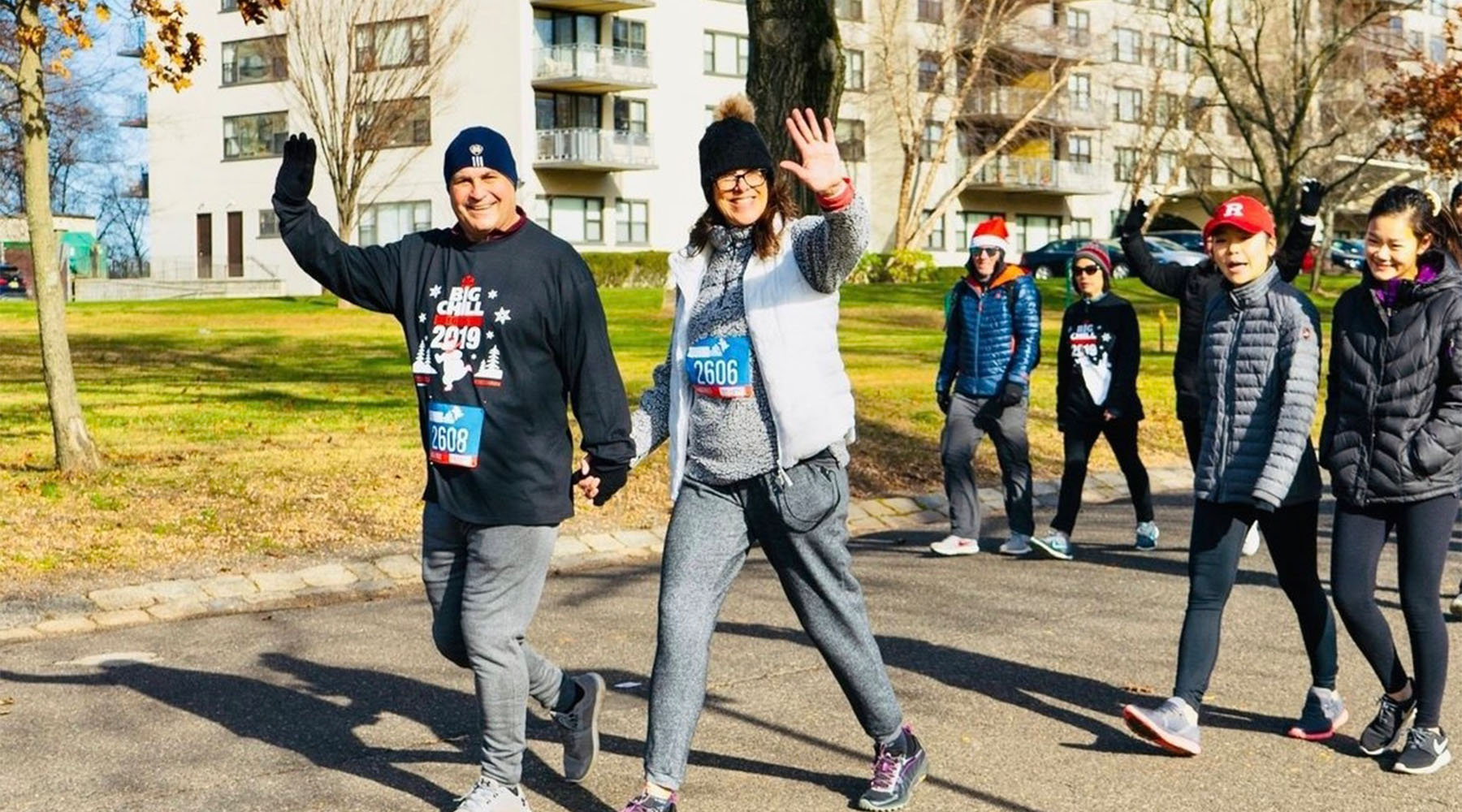
Set Small Daily Goals: Psychologists studying how exercise relieves anxiety and depression suggest that a 10-minute walk may be just as good as a 45-minute workout. (ADAA). A long strenuous workout can be overwhelming when you have various studies to do. Start with a goal of a 10-minute walk every day. If possible, try to achieve ACSM’s recommended 150 minutes of weekly aerobic physical activity for improved health.
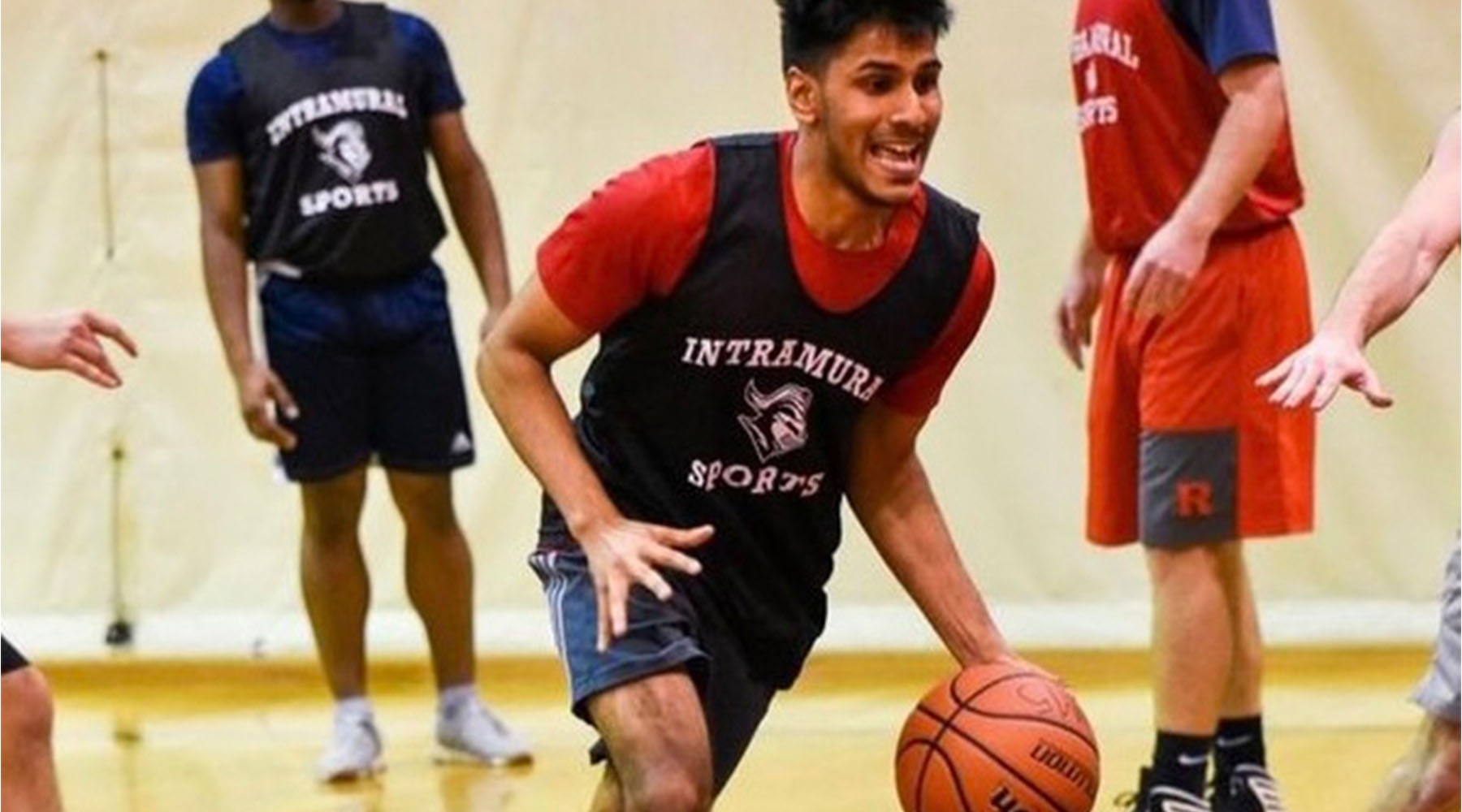
Enjoy your Exercise: Plan to do physical activity that you actually enjoy. During the high-stress time of studying, your breaks should add joy to your day. Activities like juggling a soccer ball, shooting hoops, playing with your siblings outside, or jumping on your bike all count as physical activity. Find out what you enjoy by trying 10-minutes of different activities or checking out online or in-person fitness & wellness classes.
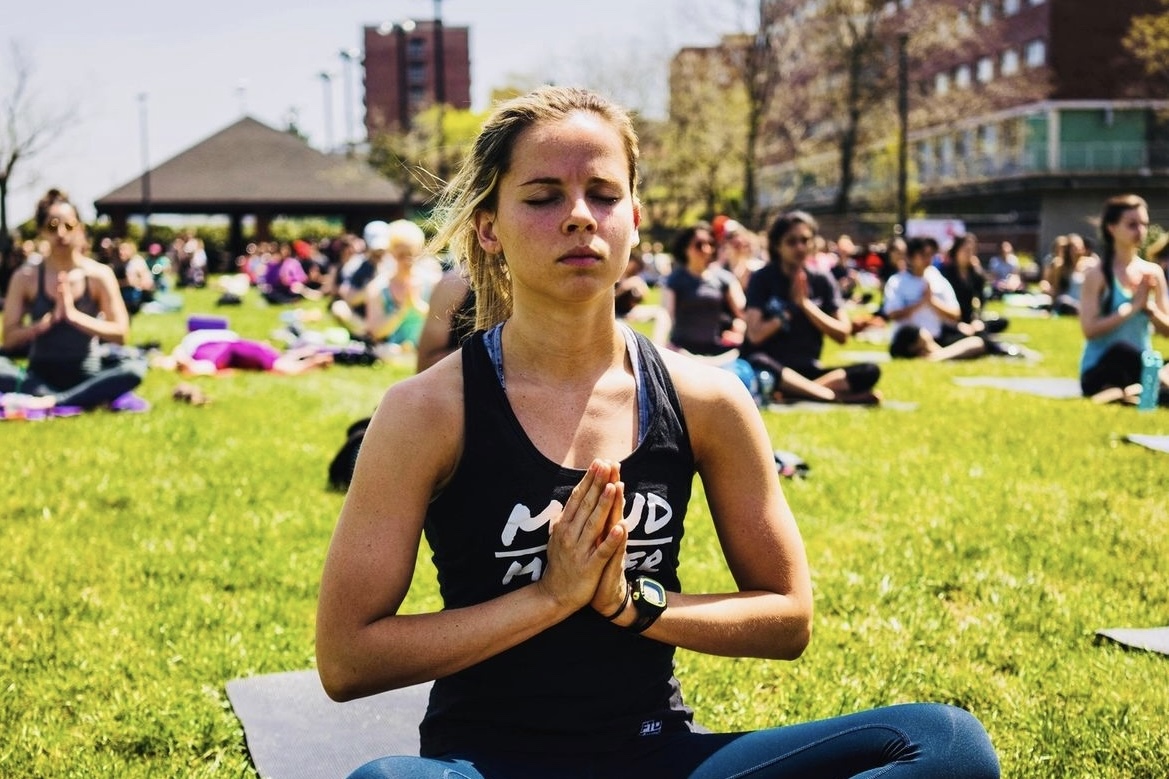
Avoid Stressful Workouts: Stress is stress. If you feel stressed or overwhelmed during finals week, it might be a good idea to do a low-stress workout to give your mind and body time to downregulate. This might not be the best time to do a high-intensity interval session. Try out yoga, meditation, or a nature walk.

Call an Exercise Friend- Lean on your buddies during stressful times. Use your friends to hold you accountable for your workout plan or talk out your stresses on a walk. Your personal trainer or class instructor can also be a friend to work out with!
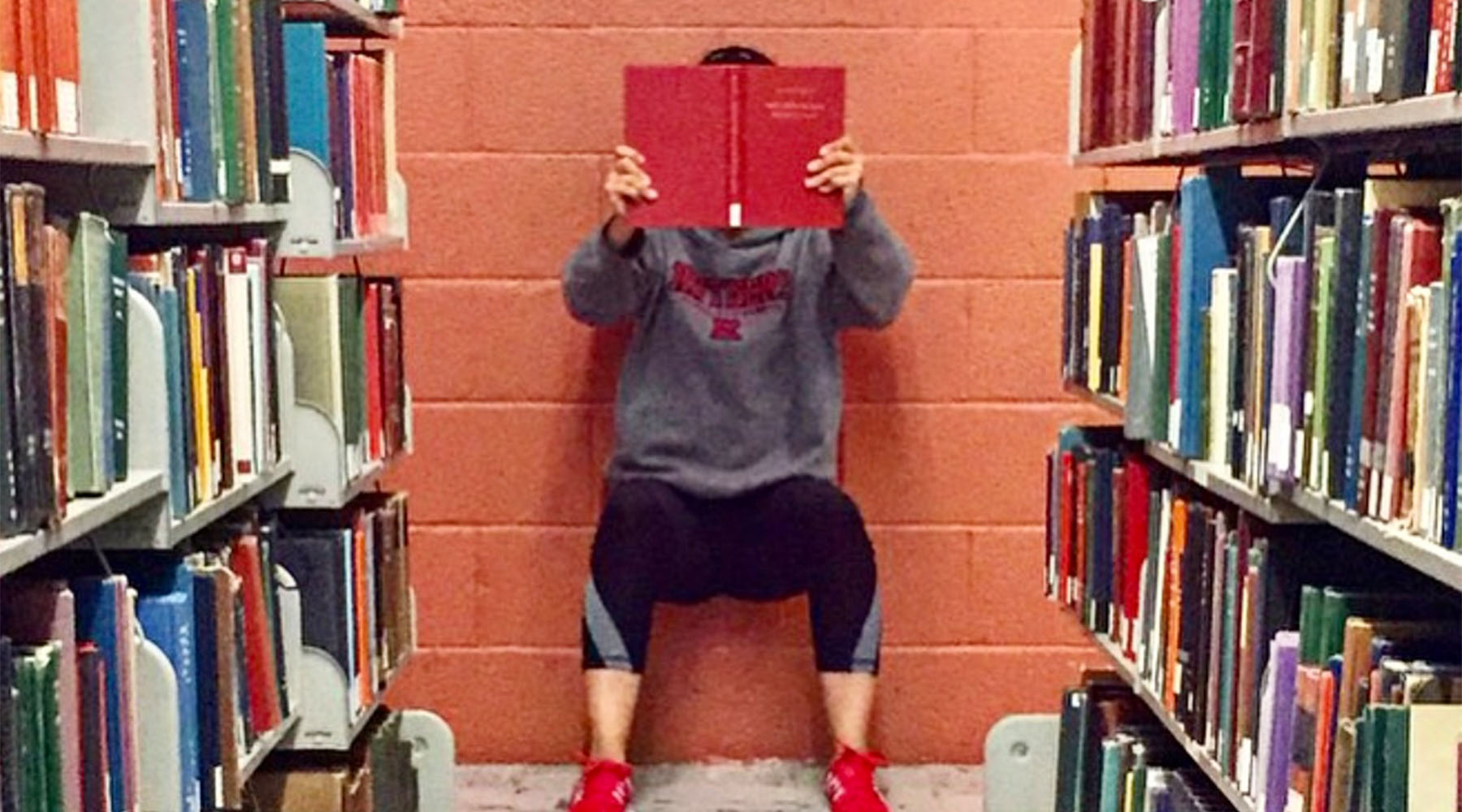
Follow the 50/10 Regimen: A tip to staying alert and focused is actually to step away from your studies on a scheduled basis. Next time you sit down to study, set your alarm for 50-minutes; when that alarm goes off, take a set 10-minute break. Use this break to stand up, stretch, drink a glass of water, and move. Follow this regimen for your entire study session to enhance mental and physical health.
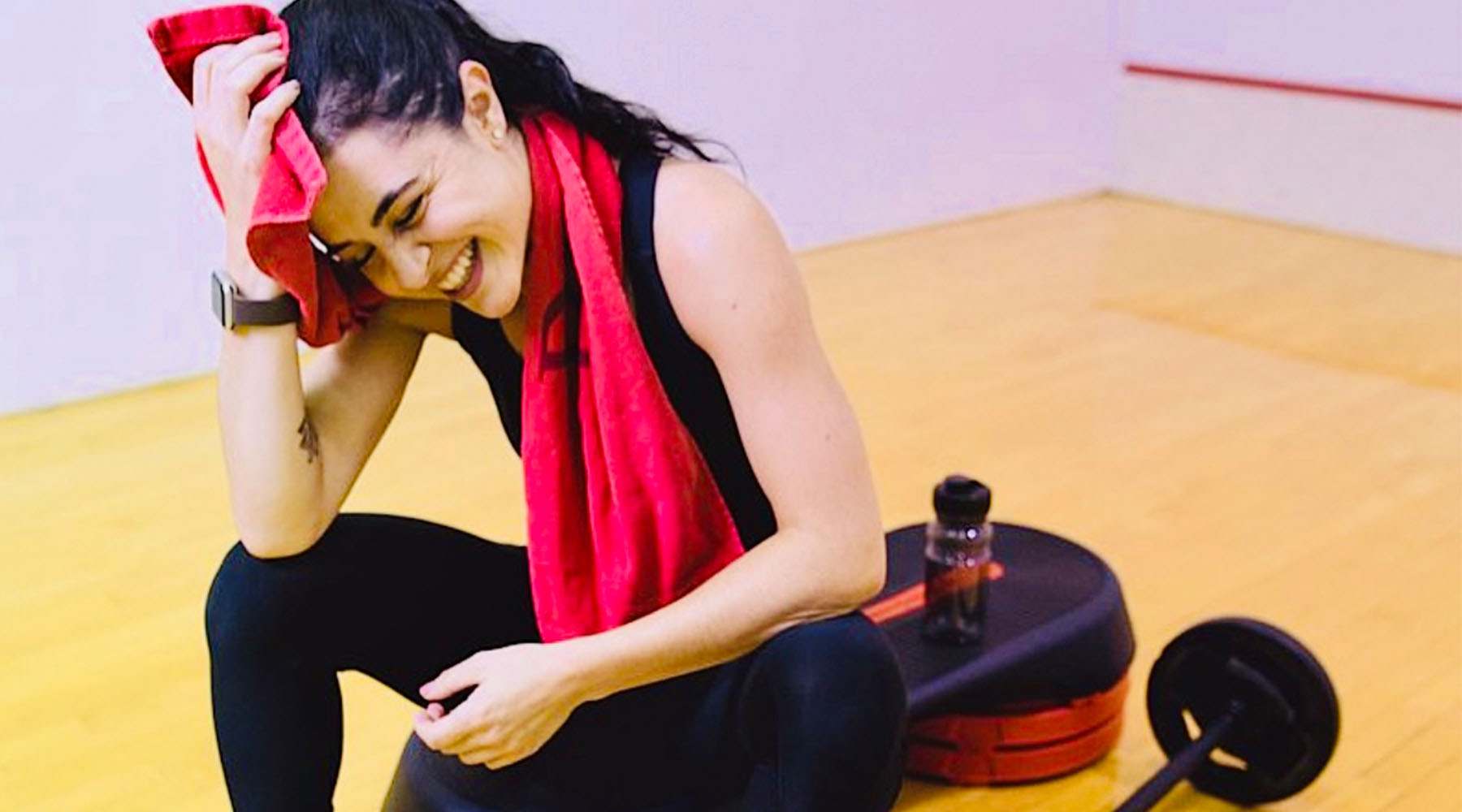
Schedule Your Workout: Make your workout a priority. Set the alarm in your phone for your workout and stick to that timeframe. Whether it’s 5 minutes or 60 minutes, we all need a set time period to stay on schedule.

Stretch or Strengthen At Your Desk: If you feel like you cannot step away from your studies, try a desk stretch or strength routine for as little as 2 minutes! This will help improve blood flow and posture during your study session.
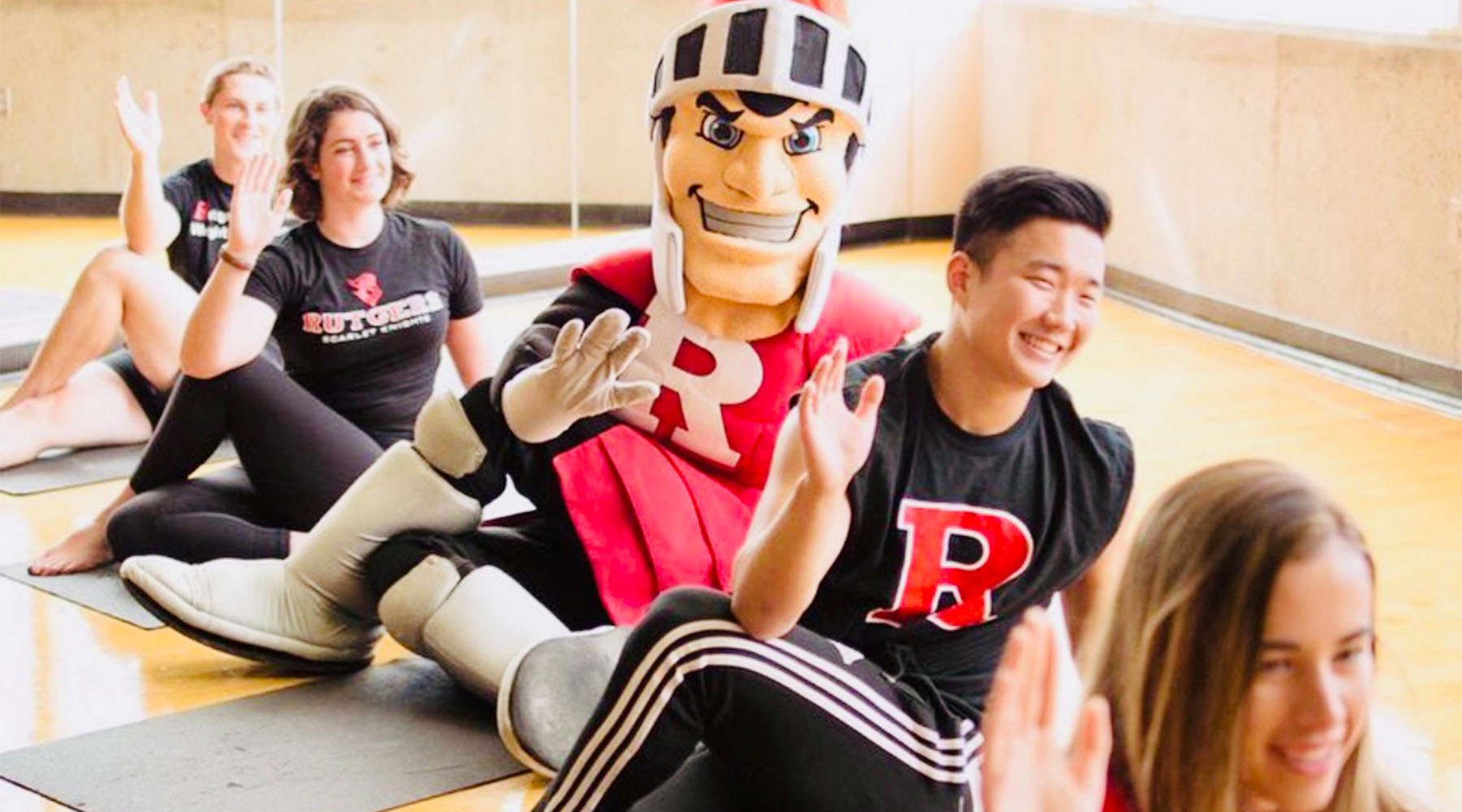
Workout Guilt-Free: Remind yourself that a quick 10-minute movement break is beneficial to your academic performance. Try to push away the “guilt” of not studying and know that you are benefitting your health and academics at the same time… now that’s being time-efficient!
